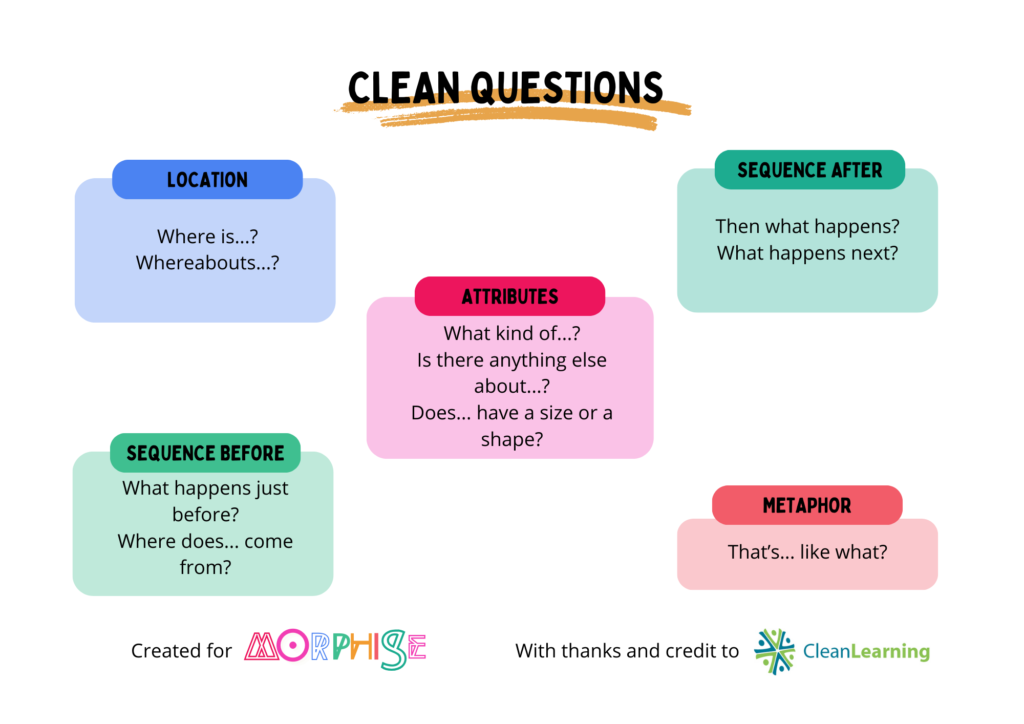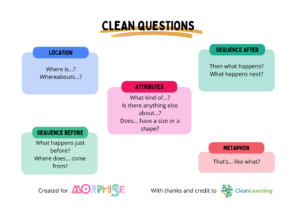Someone comes to you and asks for your advice:
“I feel like I’m a bit addicted to my mobile phone. What should I do?”
“I’ve just had a row with someone close to me. How do I fix it?”
“I can’t stop [insert any habit – eating sweets, drinking wine]. What should I do?”
My desire in those situations is so often about sticking on my superhero cape, jumping to rescue and helping the person ‘fix’ their problem. Even now that I know a different way, the pull for connection through rescuing is still strong.
“Just put your phone in a drawer and leave it there for an hour. I’ve turned off all my notifications and that’s worked for me.”
“Tell them you’re sorry. No matter what happenend I’m sure you can work through it.”
“Stop buying sweets or wine, and just don’t have them in the house.”
The solutions often feel so obvious when you’re outside the problem so why don’t people do this stuff for themselves? And why does the advice so often get ignored or ineffectively implemented?
Despite how appropriate and seemingly useful these suggestions are, they’re an instruction, and despite the willingness by the other person to listen, the chances are they’ll struggle to put those instruction into action. Have you ever done that yourself? Heard an idea that made a lot of sense but then not had the time or capacity to do anything with it? Then, when you do eventually remember what you were ‘supposed’ to do, you end up feeling like a failure and the negative self-view perpetuates.
For both sides of the relationship there is an alternative. By paying attention to our beliefs, our values, our behaviours and patterns we can learn to understand the model of the world that we’ve created. Each of us has a unique lens on reality, created by our upbringing, our culture, family values, education, and our experiences. When we choose to notice and recognise this model we also create the opportunity to upgrade it.
How to find the upgrade
If you’re anything like me and this is making sense on a theoretical level, the missing component then becomes, ‘how!’ I was paralysed by this question for years until I got introduced to something called Clean Language.
‘The approach encourages participants to express themselves with maximum freedom and minimum constraint or contaminations from the facilitator’s concepts and assumptions about the way people or the world works. ‘Clean’ is what the facilitator does with their words, voice or body that’s non-leading, with the intention to invite someone to attend their inner world, not to draw out information’ (Tompkins and Lawley). The process allows the person to make sense of themselves through the specific clean questions they’re asked, and there are a basis of 10.

In doing so, the facilitator doesn’t advise or mentor, or assume they have any answers for the person they’re working with. The space created is pure exploration and the outcomes are dictated by the participant. It’s this feature that makes Morphise incredibly different to your standard mentoring programs because whilst I point young people in a certain direction, I’m only holding the map. Where they choose to go is up to them.
Once I learned how to ask Clean Questions I stopped feeling the need to ‘fix’ situations people found themselves in, because it taught me that I couldn’t. Other people have different models of the world and so by trying to ‘fix’ something all I’m doing is exploring my own world through their issue, and trying to project my solution onto their experience. Think of it like 2 cinema screens running side by side – mine and yours. As I listen to your problem, my screen starts to play my version of your story, and when I give you advice, that’s like me turning the projector from my cinema screen towards yours. Now both our films are running over the top of each other on one canvas – the story from your life and the version I created on mine. It all gets a bit blurry and confusing.

A different option is to develop the tools to watch the other person’s movie without judgement and then to ask them questions about the plot so that they can rewrite their own script based on their understanding of themselves as the lead character. You get curious about what’s going on for them because in this scenario we acknowledge that we can’t see each other’s screens, so the story playing in your cinema just starts with a giant question mark about their experience. Rather than running it through your own lens you’re just utterly present for what’s happening for them in their world.
Clean at Morphise
There are many well-meaning adults in a young person’s life, there is a lot of information and advice online, and there are countless coaching and mentoring programmes available with worksheets and reflective tasks. Sometimes the young person isn’t ready for the work or hasn’t developed those reflection skills, which can impact on feelings of self-worth. Other times, those options might come with biases attached and can lead to even more confusion if what the young person wants doesn’t conform to the bias being presented.
I once worked with a teenager whose school wanted her to focus more on her education, to improve her attendance and behaviour for learning. I was given a lens through which to see her because the school had a defined outcome in mind – getting her to achieve some GCSEs. The story being told about this young person was that she was lazy, loud and disruptive but what nobody knew about her was that she was amazing at circus skills. She spent as much time as possible at the gym because she had a desire to one day be part of Cirque Du Soleil. Instead of focussing on the school’s priorities, we looked at reasons why she thought learning skills, goal setting and an education might benefit her in the future. We talked about what she’s like when she’s learning or working at her best, and she got clearer on her goals for the next 5-10 years. I’m not sure if her attendance improved or if she ever achieved any GCSEs, but I do know she valued the discoveries she made of herself. Clean Language is a way of making sure the young people at Morphise stay in the driving seat every step of the way and that it’s their choices and their path that gets forged and followed.
We use Clean Language in a very specific way to help young adults begin to map the structures of their thinking. It starts with understanding what the young person wants to focus on (such as time management or future career ideas) and then giving them the space, guidance and encouragement to dive a little deeper, finding clarity, perspective and sometimes even new ideas by asking, “And what would you like to have happen?”.
Wherever possible, clean questions can help us create metaphors to explain some of the more complicated concepts that live within us. Sometimes it’s easier to describe a feeling or belief by comparing it to something else. It’s why we know not to go outside when ‘it’s raining cats and dogs’, and does it also help you understand my mood if I describe ‘overwhelm’ as ‘a cloud of chaos above my head’? It’s through this skill that Morphise members can gain access to the patterns that make them unique and to work out what they’d prefer to have happen instead.
Teenage brains develop and reshape at different rates as they grow into adulthood, so we offer a space for self-reflection and make that remodel more conscious and intentional. Some young people might find themselves on a path already, and want to know more or have questions or concerns about those choices, others might not know what they want to do but instead are curious about how to be.
If you’d like to know more about Clean Language and how to use it, or if you’d like to experience it for yourself or the young people you care for, then get in touch today and book a free, no obligation call so that we can answer your questions. We can work with groups, individuals or entire schools (from senior leaders, to teachers, support staff and pupils), to embed the skills of clean questions. The possibilities of the questions, once you’ve learned how to use them, are endless.
Clean Language was developed by David Grove, a counselling psychologist from New Zealand, and some of the content, ideas and images for this blog post are credited to Clean Learning and the Clean Collection.

